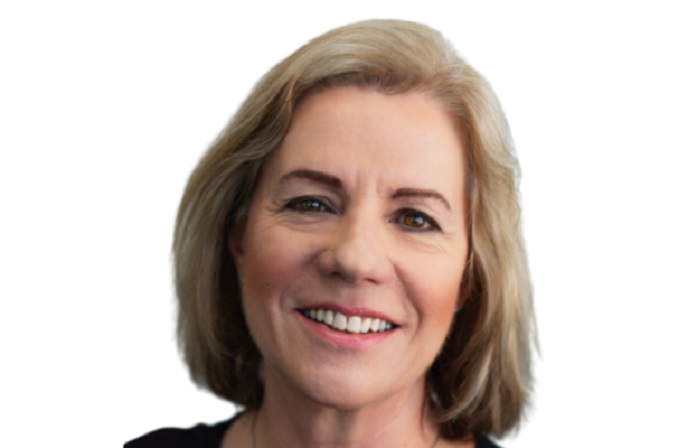
ANZ New Zealand’s chief operating officer speaks to FST Media about the emergence of digital disruptors in the payments space like Apple and Samsung.
FST Media: What are your priorities for the next 12 to 18 months?
Bullock: Since we merged The National Bank and ANZ systems in New Zealand in 2012, we have experienced a fantastic energy in our business. My main priority is to build on this momentum and further enhance our customer proposition by being an easy, convenient bank to do business with. Delivery excellence is a key reason for our customers’ trust in us, so protecting that reputation, as well as our 175 year heritage, is critical. We are in a unique position to connect Kiwi businesses to 33 markets within ANZ’s global reach, and our scale affords many benefits and responsibilities. I am looking forward to continuing the tremendous work we do in our communities, and working in partnership with organisations that are making such a significant difference for many Kiwis. ANZ is a great place to work and our flexible work arrangements are well supported by ongoing technology investments and a culture based on inclusion.
FST Media: What technology or innovation will be a game-changer in the banking industry in the year ahead?
Bullock: For us, it will be goMoney Wallet. Mobile continues to be the main game-changer for ANZ, as we continue to see around 14,000 customers migrating to our goMoney banking app every month. Our customers make around 100,000 payments through goMoney every day. Later this year we will be adding a Host Card Emulation (HCE) technology to goMoney, which we are calling ‘goMoney Wallet’. We see this as the next evolution in payments, and we expect our customers will enjoy the convenience of paying for things like coffees, petrol or groceries with the tap of their phone. Of course, in delivering technologies that make payments so easy, we also need to ensure it is safe and secure. Our customers expect this of us, and we take this responsibility very seriously.
FST Media: As a member of the ANZ Global payment leadership team and director for Payments New Zealand, what are your thoughts on the emergence of digital disruptors in the payments space like Apple and Samsung?
Bullock: We are watching this space closely, as are the payment industry bodies and our regulators. Disruption in itself is nothing new, and remains an important element in any dynamic market place but, as a bank, we have a responsibility to our customers and shareholders. We need to differentiate between healthy, sustainable solutions that benefit our customers and the market place, and those that are short term and risky. In banking, “trust” is a critical element for customers.
FST Media: What are your views on cloud adoption?
Bullock: The cloud is a great thing and it cannot be ignored as an industry trend. We need to be mindful of protecting customer data, so our current focus is on leveraging the cloud for services or data that we classify as public, for example ‘customer help’. Meanwhile, we have invested in building our own internal cloud for ANZ’s network. It spans 33 markets and keeps 48,000 staff securely connected with millions of customer records. It helps us to reduce costs and leverages our global scale, which obviously plays well for us.
FST Media: How will ANZ leverage data insights and an agile release approach to deliver a seamless customer experience?
Bullock: Customer experience is something I am particularly passionate about and we can use our data to make a lot of transactions easier for our customers. The speed of innovation is so rapid now that we have moved to an Agile, release-based delivery. It is quicker for us to make changes and adapt, if things move in a different direction from the one we were expecting. For instance, we are making improvements to our digital banking platforms all the time in order to deliver new features to our customers as soon as they are ready to go. Introducing small enhancements can help us deliver a seamless customer experience, and facilitate greater customer engagement with our products. We are also well advanced in modernising our technical infrastructure, and have strong momentum in connecting our customer-facing channels with our core systems. This enables better customer experiences and will ultimately have real rewards for Kiwi business.
FST Media: What is your most effective customer acquisition channel and why?
Bullock: Our physical branches are still a really important channel for us. Four out of five of our customers say they would like to talk to someone in person when they are making important purchases like a home loan. We have invested a great deal in optimising our branches, so that the physical experience of ANZ is closely matched with our online channels. We have also expanded the reach of our branch network to cover 87 per cent of the places that Kiwis live and work. We make it our business to be where our customers want us to be, whether that is online, in a branch, or visiting them at home or work.
FST Media: How are ANZ leveraging social media and mobile platforms to engage with an increasing Gen Y customer base?
Bullock: We are embracing social media at all levels within our organisation. Our Group CEO, Shayne Elliot, believes in the future of social media and supports it from the top level of ANZ. BlueNotes, our branded journalism site, is a great external example of how we are innovating to reach new audiences and becoming a ‘thought leader’. Internally, we are installing a collaboration tool – we believe this form of social media within our organisation will increase interactions between staff, and create better outcomes for our customers. Mobile is obviously an important channel for Gen Ys and we are already investing more in mobile development than we are online.
FST Media: What is the ‘holy grail’ that technology and innovation are yet to deliver in financial services?
Bullock: No single technology will change the world. However, incremental developments will provide customers with more choices. There is a lot more that we can do to unlock the potential of the data we are in contact with every day. We will also be keeping an eye on bio-technologies and virtual currencies: these could have a significant bearing on where our business heads.
FST Media: How do you define success?
Bullock: There are a number of key business metrics that determine success, but in my view it is the underlying performance that truly motivates me. Do we have an engaged, respected team that collaborates well to improve our customer experience? Are we fulfilling our corporate social responsibilities, and actively contributing to New Zealand’s prosperity beyond the traditional purpose of a bank?
Our success will be defined by connecting Kiwi businesses with opportunities outside of New Zealand, and offering our unique market insight by partnering with educational bodies to provide a relevant curriculum that ensures New Zealand remains efficient and easy to do business with.
FST Media: With respect to career development, what is the greatest advice you have ever received?
Bullock: An old boss once said to me: “take the time to reflect”. Five small words, but at the time they meant nothing to me. After many years, and many pieces of advice, this one has stood out. As my career has developed, I have found it deeply rewarding to take the time to reflect, and to understand how I could have done things differently. It is a powerful learning tool: particularly if you have the courage to involve others in that reflection. After all, a little humility goes a long way.
FST Media: Every leader has a legacy they wish to be remembered for, what is yours?
Bullock: Some basic philosophies have helped to steer me in life: common courtesy, good manners, respect and a strong work ethic. These are all crucial elements of my leadership style. These, in turn, create an environment where people feel valued, innovation is encouraged, a sense of purpose becomes obvious and, ultimately, a strong emotional connection is made. The outcome could be greater customer satisfaction or a more efficient operating environment. What remains important is that this legacy will be upheld by those I lead.





